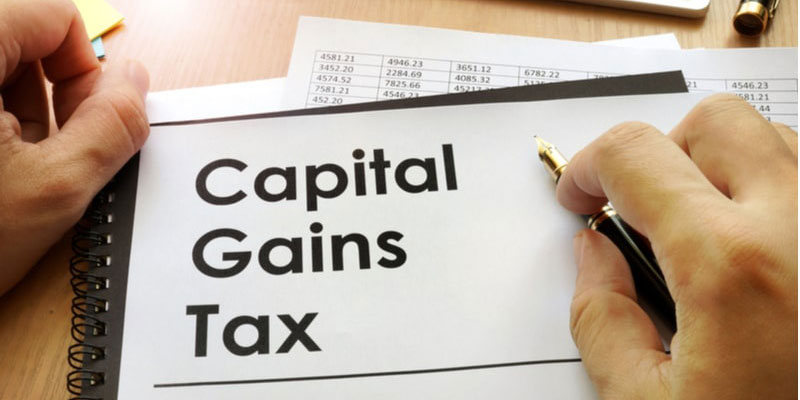The interest you earn on most savings accounts and related investments must be taxed, such as money market funds. If you're looking for strategies to lower your tax burden and extend your savings, a few types of savings accounts and other financial instruments could be worth exploring.
Savings accounts may lower your tax burden in two ways. Depositing money into some accounts before taxes lowers your taxable income for the year. Other accounts allow you to earn interest on your money without paying taxes on it, which lowers your overall tax burden in the long run.
Tax-Advantaged Retirement Accounts

Retirement planning should be a top concern for everyone, regardless of their age or stage of life. You may save more money for retirement if you use tax-advantaged accounts.
Investment Accounts for Individuals (IRAs)
Individual Retirement Accounts (IRAs) come in various forms, each of which can help you save money on taxes. You have paid taxes on the money you put into a Roth IRA, so the interest you earn on that money will be tax-free when you take it out in retirement. You aren't taxed on the interest you earn in the account before taking it out of the account.
You can deduct the amount you donate from your taxable income to a Traditional Individual Retirement Account (IRA). You don't have to pay taxes on the interest you earn while your money is in the account. You can avoid paying income tax on your contributions and the money they earned while in the account by opening a Roth IRA. 1 Traditional IRAs include SEP IRAs and SIMPLE IRAs.
401(k)s and Other Forms of Prepaid Retirement Savings
Deferring a portion of your salary into a retirement account is made possible by your employer's 401(k) programs. There is no taxation on the money you put into your 401(k), so every dollar you put in lowers your total taxable income for the year. An employer-sponsored retirement account can be even more beneficial.
For public school workers and employees of some tax-exempt organizations, 403(b) plans are similar to 401(k) plans, while 457 programs are offered to select government and non-profit employees. Until you remove your money, your investments will not be taxed. Your current income tax rate is applied to both donations and earnings.
Health Savings Accounts (HSAs) and Flexible Spending Accounts (FSAs)
Some tax relief is provided while healthcare and, in the case of some FSAs, childcare bills are helped by programs such as flexible spending accounts (FSAs) and health savings accounts (HSAs). Individuals who have a high-deductible health plan are eligible to create a health savings account. In 2021 and 2022, a high deductible health plan must have an annual minimum deductible of $1,400 for single coverage or $2,800 for family coverage, according to the Internal Revenue Service (IRS).
A high deductible plan's annual out-of-pocket payments for self-only coverage and family coverage for 2021 and 2022 do not exceed $7,000 and $14,000, respectively, for self-only and family coverage, respectively. Deductibles and co-payments are included in out-of-pocket expenditures, but monthly insurance premiums are not. Individuals can contribute up to $3,600 a year, and families can contribute $7,200. Individuals can contribute up to $3,650 in 2022, and families can contribute $7,300.
Accounts for Educational Savings

Another primary reason individuals save money is college or other educational fees. Saving money in a tax-advantaged account can lower your tax bill.
529 Accounts
A 529 plan may be used to save for both K-12 and post-secondary education for the first time. (Until recently, only post-secondary expenditures were permitted.) Savings and prepaid tuition plans are two of the most common options, allowing you to lock in current tuition rates for future enrollment at a specific college or university. You may also exempt the money from state taxes in several areas.
Coverdell Education Savings Accounts
It's a trust or custodial account that may be used to pay for elementary, intermediate, and post-secondary education expenditures, just like a 529. Any money left in the account after the beneficiary reaches 30 must be dispersed and taxed. Therefore distributions are only tax-free if used for eligible purposes. 14 Unlike a 529 plan, the beneficiary of a 529 plan can be of any age.
Municipal Bonds
Public improvement projects can be funded through municipal bonds, or "munis," which local governments offer. They typically have a defined rate of return and a predetermined period. There are summary bonds that mature anywhere from one to four years and lengthy bonds that don't mature for more than a decade.
Long-Term Care Insurance
Permanent life insurance plans with cash value, such as whole life or universal life, are a lesser-known means to build tax-free growth and income. These plans provide a death benefit and a cash component that may be used while the insured is still alive.
In many circumstances, dividends are not taxed, and this money grows each year at a low rate. You will not be taxed if you withdraw money that you have contributed (the basis). Your policy's cash value is tax-free, so you may borrow against it to meet the interest costs.




